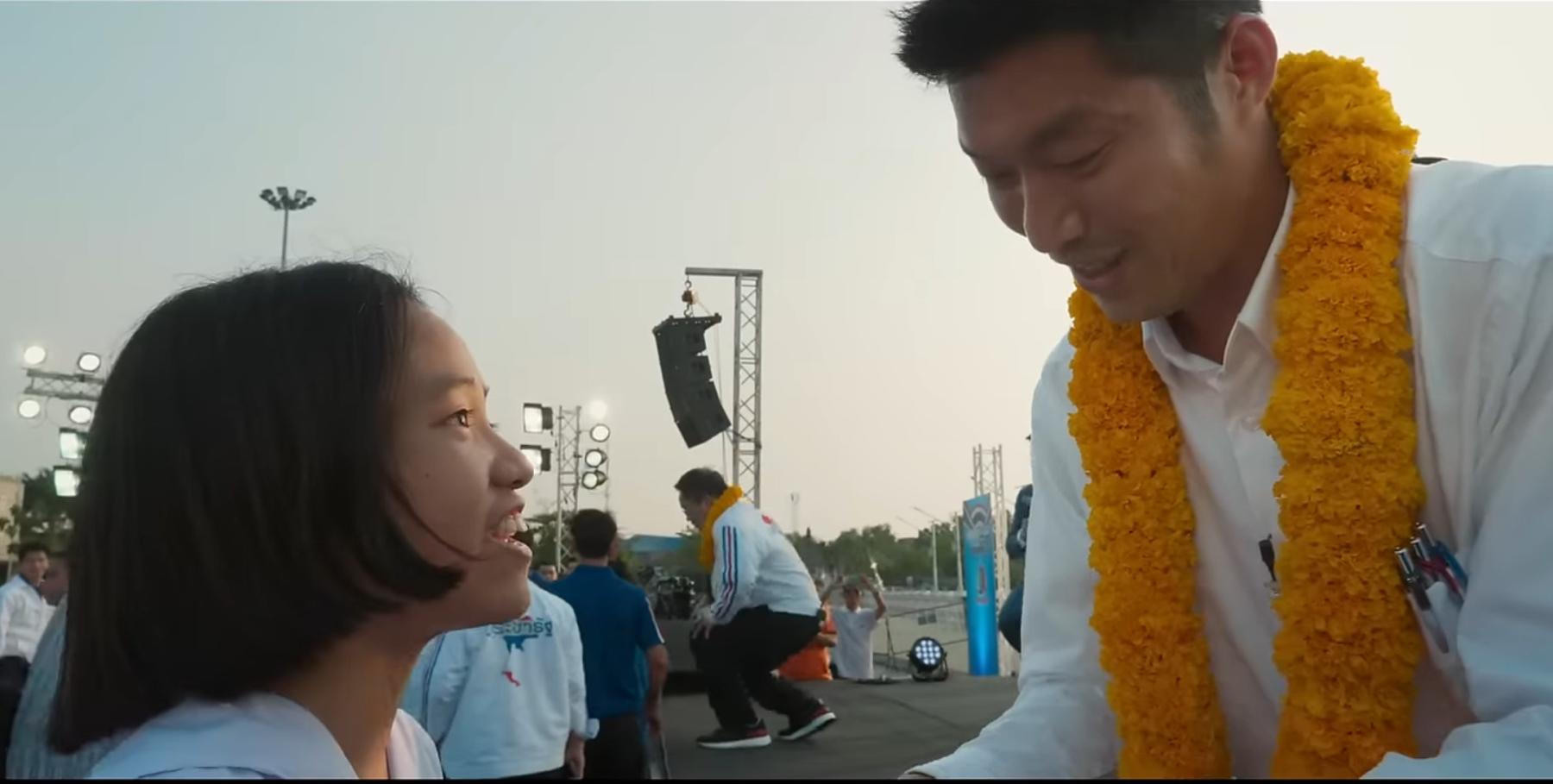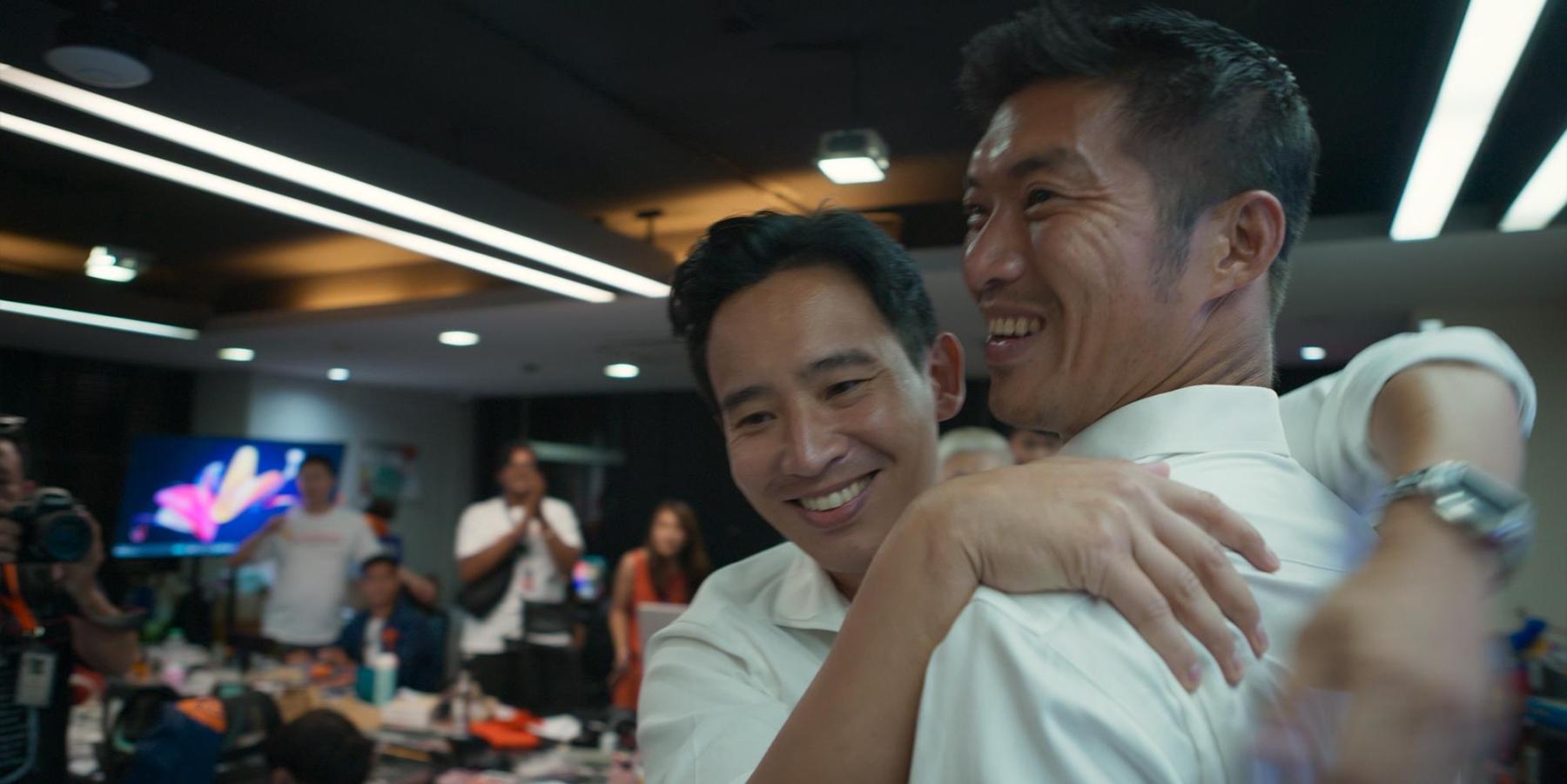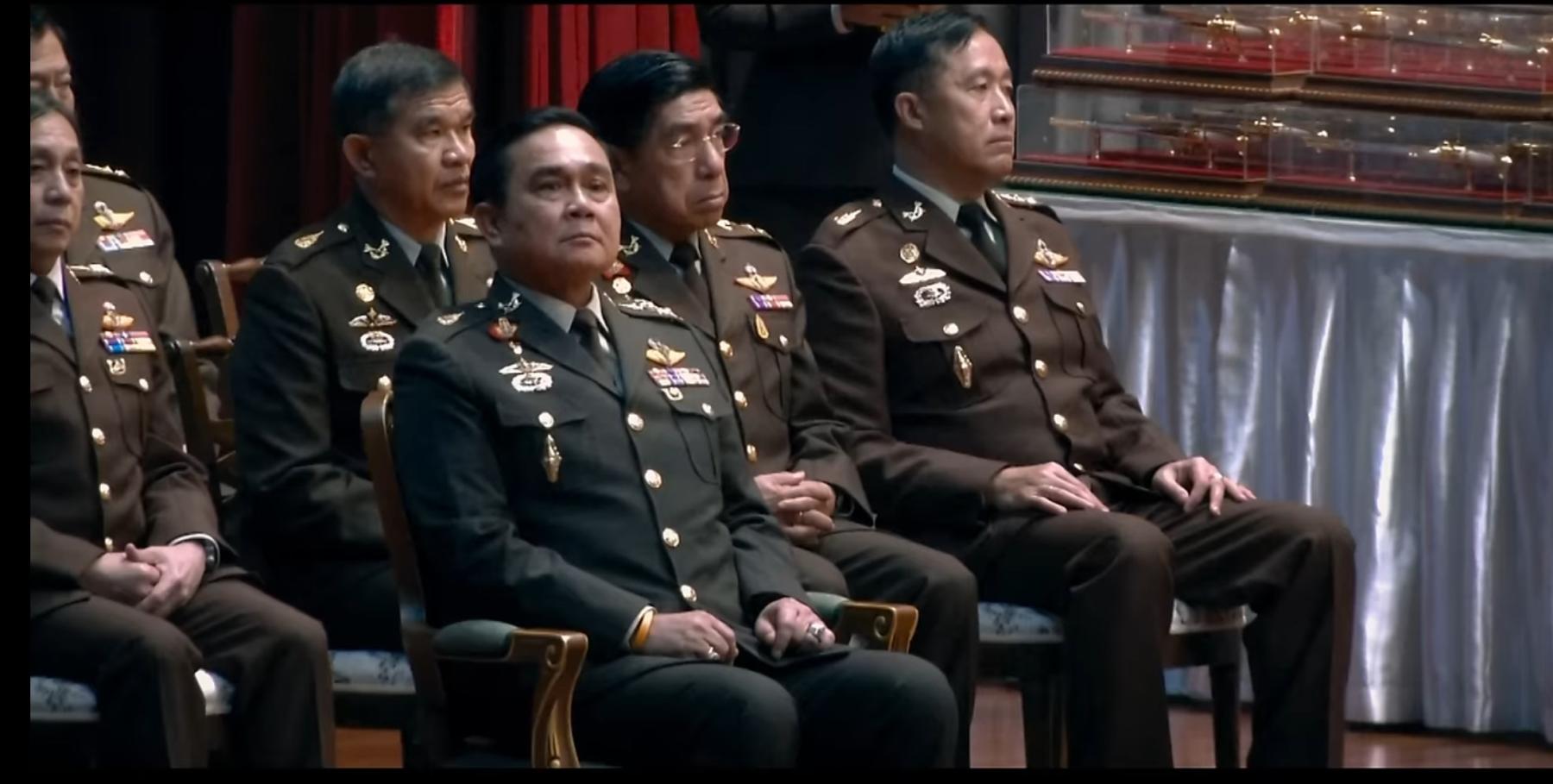Breaking the Cycle: On the Spirit of Youth Movements
Across Asia, political events have spotlighted youth-led movements challenging entrenched systems, with paradigm shifts including the rise of Balen Shah in Nepal, the end of Sheikh Hasina’s regime in Bangladesh and the ongoing struggle for democracy in Thailand following the election of Paetongtarn Shinawatra as prime minister. The film Breaking the Cycle (2024), directed by Thanakrit Duangmaneeporn and Aekaphong Saransate, encapsulates this spirit of youthful defiance and hope.

Directors Aekaphong Saransate and Thanakrit Duangmaneeporn, along with producer Komtouch Dew Napattalong, attended the Sheffield DocFest in June for the screening of their documentary Breaking the Cycle.
Premiered at Hot Docs 2024 and screened at Sheffield Film Festival 2024, the 117-minute documentary focuses on the social and political turmoil in Thailand under the military junta that seized power through a coup d'état in 2014. The film advocates restoring democratic authority to the people and ending Thailand's long history of military coups—marked by thirteen such events since the Siamese Revolution of 1932—by highlighting the journey of Thanathorn Juangroongruangkit and the Future Forward Party (FFP).
Thanathorn, a former businessman turned activist, co-founded and soon became the elected leader of the FFP, a party portrayed as the embodiment of youth-led change and progressive values. “I felt hopeless about the current state of our society. Nobody dared to challenge an authority that did not come from the people. The only choice left was to do it myself,” Thanathorn declares, providing a story of personal courage amidst a nation’s ongoing fight for democracy.

Thanathorn Juangroongruangkit engaging with a supporter during a campaign stop in Bangkok.
The film explores the emergence of youth activism against undemocratic military regimes, a particularly timely intervention in light of recent developments in Thailand. The country’s political landscape has been shaken by the investiture of Paetongtarn Shinawatra as prime minister and the Constitutional Court’s disbandment of the Move Forward Party (MFP) which evolved from the dissolved FFP. Following Thanathorn’s journey from founding the FFP to its eventual dissolution, Duangmaneeporn and Saransate skillfully capture both the hope and disillusionment of political movements.

Move Forward Party leader Pita Limjaroenrat embraces and thanks Thanathorn Juangroongruangkit, former head of the dissolved Future Forward Party (FFP), in a celebratory moment.
Threatened by the FFP’s success in garnering rapid support from grassroots campaigning as well as Thanathorn becoming a viral sensation among Thai youth, the young leader was prosecuted over a loan to the FFP, which ultimately resulted in the party's dissolution, even though similar loans were made by thirty-one other parties. Despite the deepening disillusionment among the people, the film ends on a hopeful note. It shows how the MFP won the most seats in the 2023 election even though the Senate’s influence hindered their candidate’s selection for prime minister, leaving the task of constitutional reforms unfulfilled.

General Prayut Chan-O-Cha, with his military officials.
Central to the film is its critique of Thailand’s military regime under Gen. Prayut Chan-o-cha and the National Council for Peace and Order’s control over the Senate. Early in the film, references are made to junta-imposed restrictions on political campaigning, threatening Thanathorn and the FFP with arrest. The film also highlights the arrests of over 212 activists for protesting the 2017 referendum and the detention of 33 students demonstrating against the NCPO, showcasing how dissent is silenced in Thailand.
The film contrasts the suppression of free speech with the rise of youth-led digital activism, demonstrating how the FFP capitalised on the viral ‘#FahloveDaddy’ phenomenon to promote Thanathorn as a charismatic politician and advocate for their agenda, including amending the 2017 constitution. In a spontaneous scene on the campaign trail, a queer voice shouts “Fah loves Daddy!” as Thanathorn turns to greet the supporter, a moment that quickly spread across social media. This viral instance not only highlights the digital activism that powered Thanathorn’s campaign but also symbolises a generational shift in Thai politics, driven by youth eager for change and reform.

Thanathorn Juangroongruangkit delivering a passionate speech, to abolish 2017 constitution of Thailand and reaffirming his commitment to fight for the protection of people’s rights and equality.
In the film’s climax, Thanathorn and Gen. Prayut face off in the 2019 election as members of parliament cast their votes for prime minister. Two vote tallies are displayed side-by-side as MPs cast their ballots, while the camera alternates between election footage and viewers eagerly following the results from homes, restaurants, cafés and on their phones. Although Gen. Prayut wins the vote, the film contrasts the diverse, youthful MPs supporting Thanathorn with the old guard backing Gen. Prayut.
Breaking the Cycle not only champions a young and vibrant political movement but also captures the human emotions driving the fight for democracy in Thailand. The film resonates with similar struggles in Nepal and Bangladesh, highlighting a shared spirit of youth activism amid political instability across these nations.

Thanathorn Juangroongruangkit, alongside directors Aekaphong Saransate and Thanakrit Duangmaneeporn, poses at the premiere screening of their documentary Breaking the Cycle (2024) in Thailand.
To learn more about youth-led movements, read Shahidul Alam’s report on the protests in Bangladesh earlier this year and Jigisha Bhattacharya’s review of Franz Böhm’s Dear Future Children (2021).
Image credits: Aekaphong Saransate, Thanakrit Duangmaneeporn.




